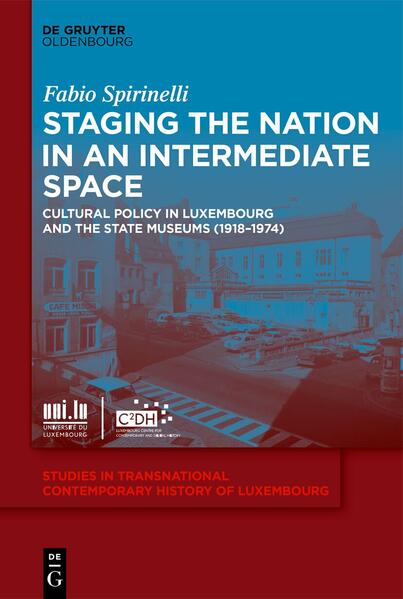
Zustellung: Fr, 04.07. - Mo, 07.07.
Sofort lieferbar
VersandkostenfreiBestellen & in Filiale abholen:
In Luxembourg, the evolution of cultural policy remains underexplored despite its pivotal role in the nation-building process. This book investigates how national cultural policy evolved from the 1920s to the early 1970s, casting Luxembourg as a nationalized intermediate space between French and German influences. Featuring a case study of the history and art section of the State Museums - the precursor to today's Musée national d'archéologie, d'histoire et d'art - the book examines the interplay of structures, actors, and discourses and how a cultural institution was intertwined with cultural policy. The study exposes the tensions between adopting external models, on the one hand, and asserting a distinct national culture amid interventionist policies, on the other hand. By including the occupation period from 1940 to 1944, it illustrates how Nazi policies challenged Luxembourg's nation-building by seeking to integrate it into the Third Reich. Combining theoretical analysis with archival research, this work offers nuanced insights into nation-building processes and is highly relevant for historians, cultural policy scholars, and museum professionals.
Produktdetails
Erscheinungsdatum
30. Juni 2025
Sprache
englisch
Seitenanzahl
VIII
Reihe
Studien zur transnationalen Zeitgeschichte Luxemburgs&
Autor/Autorin
Fabio Spirinelli
Verlag/Hersteller
Produktart
gebunden
Abbildungen
28 b/w illustrations, 3 b/w tbl.
Gewicht
910 g
Größe (L/B/H)
230/161/34 mm
ISBN
9783119147439
Entdecken Sie mehr
Bewertungen
0 Bewertungen
Es wurden noch keine Bewertungen abgegeben. Schreiben Sie die erste Bewertung zu "Staging the Nation in an Intermediate Space" und helfen Sie damit anderen bei der Kaufentscheidung.









